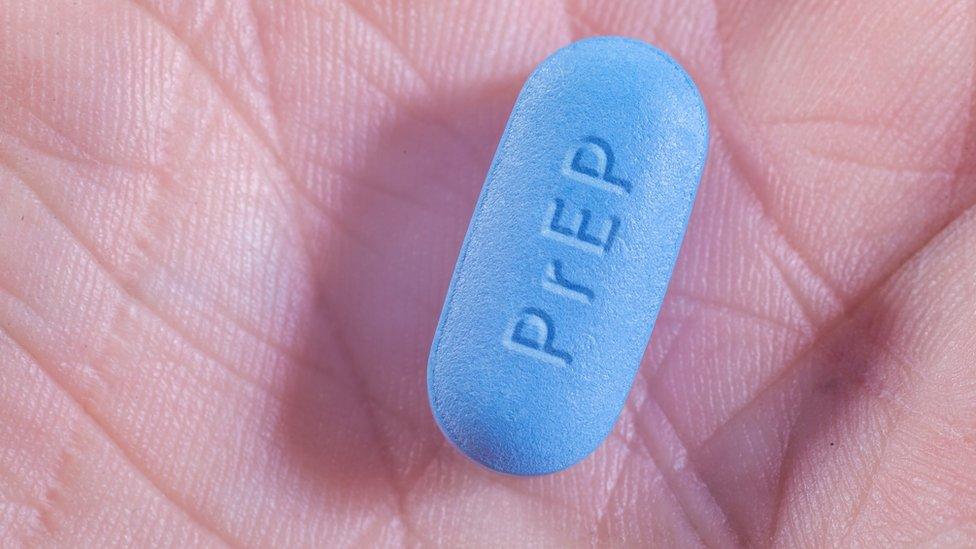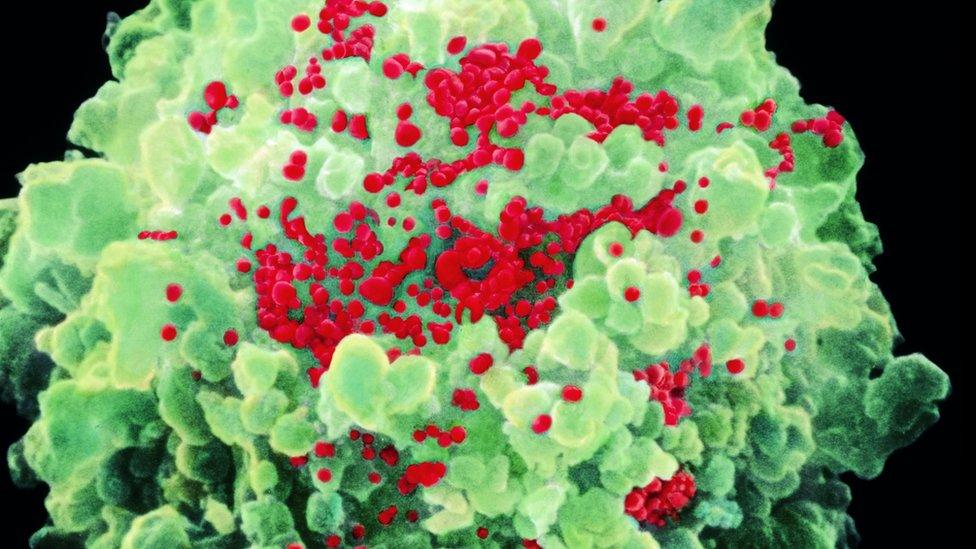Call to fund Prep HIV drug on NHS
- Published

Prep needs to be taken daily to build up resistance to HIV
Calls are being made to get a drug that prevents HIV infection in people at high risk of the virus available on the NHS in Scotland.
It follows legal battles in England over whether the NHS or local authorities should pay for it.
The drug, described as a "game-changer" by experts, is used for a process known as pre-exposure prophylaxis, or Prep.
The Scottish government wants its makers to apply for it to be assessed for use in Scotland.
In England, the NHS had previously said that local authorities should provide Prep because they are responsible for preventative health.
But the Court of Appeal insisted this fell within the remit of the NHS.
An estimated 14,000 people would be eligible for the drug - which is called Truvada.
Unlike in England, the Scottish Medicines Consortium assesses all drugs used in the NHS in Scotland.
So campaigners hope its transition for use in Scotland will be smoother.
BBC Radio Scotland's Good Morning Scotland programme has learned that the Scottish government has written to Gilead, the manufacturers of the drug, to urge them to make an application.
The SMC said it was anticipating a submission from Gilead so it could make a formal judgement on whether to approve its usage.
The SMC will also make a decision on the cost-effectiveness of the drug, which costs about £450 a month to buy privately.

What does Prep do?
Pre-exposure prophylaxis (or Prep for short) is a small, blue pill.
The pill works by protecting cells in the body and disabling the virus to stop it multiplying - should it enter the body.
Taking it once a day has been shown to reduce the risk of HIV infection by 86%.
It is currently used in the US, Canada, Australia and France to help protect gay men at the highest risk of contracting HIV.

George Valiotis, the chief executive of the charity HIV Scotland, said: "People who take Prep - they don't get HIV."
HIV diagnoses in Scotland have continued at an average rate of 359 per year for the past five years, according to Health Protection Scotland.
Across the UK as a whole 100,000 people are believed to be living with virus.
"We have seen no change in our HIV transmission rates over the last 10 years. They haven't really gone down at all," Mr Valiotis said.
"It's been an average in Scotland of one person a day for the last 10 years, so we know we need to do something else, and Prep is that something else."
A spokesman for Gilead said it had been in discussions with the Scottish Medicines Consortium.
He said: "We will make our submission in the coming weeks, in accordance with the required SMC timelines and expect the review to follow normal timelines as well."

Prep protects cells, which are then able to stop the HIV virus from multiplying
A spokesman for the SMC said it was aware of a report which has been compiled by the charity HIV Scotland, which sought to highlight the benefits of the drug and had support from health professionals.
He said: "The SMC is awaiting a submission from the company for Truvada for use as Pre-Exposure Prophylaxis (PreP) in HIV infection.
"We are aware of the report by the HIV PreP Short Life Working Group. While this report itself does not form part of the submission and therefore cannot be considered by the committee, we expect and encourage patient groups to submit evidence as part of the review for this medicine.
"This will be considered by our committee alongside the information submitted by the company."
A spokesman for the Scottish government said: "The Scottish government has written to its manufacturer of Truvada to request they make a submission to the Scottish Medicines Consortium, at a fair price, so its routine use in Scotland can be considered as quickly as possible.
"Prevention of HIV infection remains a priority for the Scottish government and there is absolutely no room for complacency on such communicable diseases."
- Published10 November 2016
